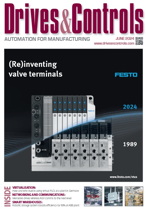- Home » News » Technology News
UK start-up uses AI to create rare-earth-free magnet material

A UK start-up has used AI (artificial intelligence) to design and create a new rare-earth-free permanent magnet material that, it claims, can be produced at 20% of the cost and with 70% less carbon emissions (measured in CO2/kg) than existing rare-earth magnets. The company, called Materials Nexus, designed, synthesised and tested the material – dubbed MagNex – in just three months, or around 200 times faster than the decades that it took to discover today’s permanent magnet materials and turn them into usable products.
Discovering new materials has historically been a slow, resource-intensive process, typically based on trial-and-error, with the result that material breakthroughs lag behind other industrial innovations. Materials Nexus claims that its efficient AI platform for synthesising new materials puts it at the forefront of the field.
Focusing initially on magnets, the platform was used to identify and analyse more than 100 million candidate materials for rare-earth-free permanent magnets. The new material was synthesised and tested in partnership with the Henry Royce Institute and the University of Sheffield.
“I am delighted to share the news of MagNex, a significant milestone in the use of AI to design materials of the future which are cheaper, higher-performing, and more sustainable than existing options,” says Materials Nexus’ CEO, Dr Jonathan Bean, a theoretical physicist from the University of Cambridge who identified the need for a modelling platform to accelerate the uptake of new materials while working as a research associate. “AI-powered materials design will impact not only magnetics, but also the entire field of materials science.
“We have now identified a scalable method for designing new materials for all kinds of industrial needs,” he adds. “Our platform has already attracted widespread interest for various products with applications that include semiconductors, catalysts and coatings. I look forward to seeing the role it will play in supporting market demand for the creation of novel materials to help address increasingly pressing supply chain and environmental issues.”
Permanent magnets are essential for a variety of technologies, including electric vehicle (EV) motors, wind turbines, robots and drones. Demand for rare-earth magnets is expected to outpace the supply in the coming years. In the EV industry alone, the use of rare-earth magnets is set to increase up to ten-fold by 2030. However, the rare-earth metals, such as neodymium and dysprosium, needed to produce these magnets, are costly and vulnerable to supply chain issues, including a heavy reliance on Chinese mines and processing plants.
“We’re really excited that our first interaction with Materials Nexus has yielded such a hugely positive outcome,” says Prof Iain Todd, professor of Metallurgy and Materials Processing at the University of Sheffield. “The combination of Materials Nexus’s approach of using AI for materials discovery, and the world-class facilities we have for manufacturing advanced alloys in the Henry Royce Institute has allowed a novel magnetic material to be developed with breathtaking speed. This achievement showcases the bright future of materials and manufacturing. The next generation of materials, unlocked through the power of AI, is highly promising for research, industry, and our planet.”

Materials Nexus has attracted £2m of seed funding, as well as backing from the UK government’s Innovate UK agency.
“This is a ground-breaking discovery using innovative machine learning software,” says Bruce Adderley, director for Net-Zero Make & Use at Innovate UK. “This could have a significant future impact on our net-zero ambitions, through renewable energy and low-carbon transport, by removing the need for rare-earth elements in high-performance permanent magnets.”
Materials Nexus’ approach could be applied to other types of material such as semiconductors, superconductors and catalysts. The company says it will make the discovery of new materials cheaper, faster and more environmentally friendly than ever before.





